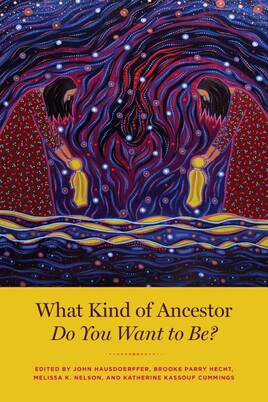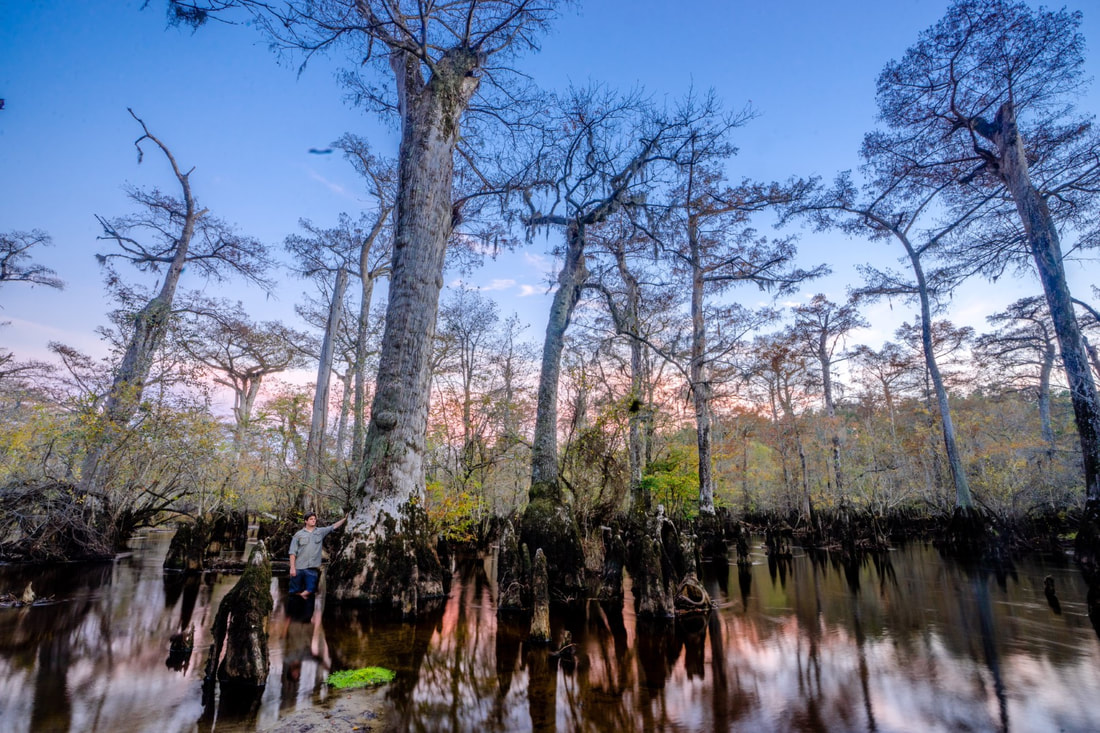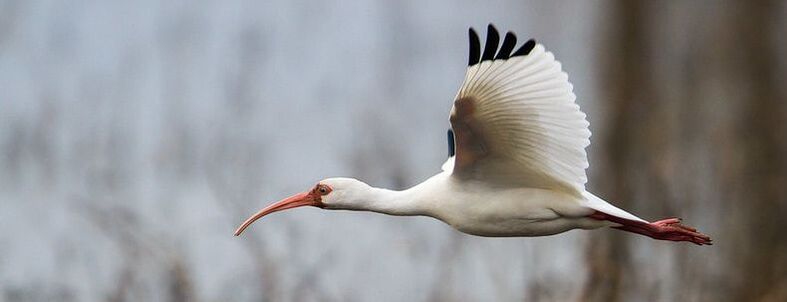By Curt MeineEditor's note: This essay is part of Curt Meine’s book, Correction Lines, published in 2013 by Island Press (Washington, DC). It appears here by permission of the author. This is the third and final section of Meine's essay. The land ethic will need to help reform the traditional economic worldview to include conservation concerns in a meaningful way.
Can the land ethic have deep and meaningful impact on the human economic enterprise? This is the 750-pound gorilla. For all the discussion of sustainability in recent decades, conservation has had a hard time gaining a full hearing within the dominant schools of neoclassical economics. Especially with rapid globalization and technological change driving economic development, conservation receives scant attention in the salons of high finance and international trade. Is there room, in the long run, for true reconciliation of economic and ecological worldviews? Is there any safe way out of our current addiction to the quarterly earnings report to a sincere commitment to the seventh generation? . . . . . . . . .
0 Comments
We are pleased to share with you an Earth Day essay written by Thomas Wentworth, PhD, inspired by his experience at the "Three Sisters Swamp" of the Black River in eastern North Carolina. Tom is Alumni Distinguished Undergraduate Professor, Emeritus, Department of Plant & Microbial Biology, North Carolina Statue University. I visited BLK227 on a Tuesday for an interview. BLK227 is a Baldcypress tree (Taxodium distichum for the botanists) in the Three Sisters Swamp section of the Black River, a bit west of Burgaw, North Carolina. BLK227 was so named by Dr. David Stahle, who runs the Tree Ring Laboratory in the Department of Geosciences at the University of Arkansas in Fayetteville. BLK227 holds the current world record for documented age of any Baldcypress tree, 2,629 years old this year. That’s a minimum age, by the way, because Dr. Stahle had to core BLK227 at a height of 10 feet above the swamp floor, and it is unknown how long it takes for a Baldcypress seedling to reach 10 feet in height. That minimum age is impressive - that’s 629 years Before the Common Era. BLK227’s age firmly establishes Baldcypress as the oldest wetland tree species on Planet Earth, and number five on the worldwide list of the oldest known continuously living, sexually reproducing, non-clonal tree species based on dendrochronology, the scientific study of tree rings. < click "Read More" below right >
I seldom make recommendations to friends and colleagues, but sometimes it is necessary to share an exceptional book, article, or video. Not long ago I “attended” the live, online presentation by Dr. Tom Fleischner, founding director (now retired) of the Natural History Institute based in Prescott, Arizona. I’ve recently become immersed in the institute’s programs and mission, and highly recommend that you too investigate its resources, including its online programs. The 50-minute PRESENTATION by Tom Fleischner is in essence a summation of his life’s work to bring the “study” of natural history back to the attention of a larger portion of the public, because this “oldest continuous human endeavor” is, frankly, at its lowest point ever in the realm of human attention. Please watch/listen to this presentation on the importance of natural history (including the concluding Q & A dialogue). Natural history—a verb, not a noun—is the practice of falling in love with the natural world. It is about paying attention. Natural history integrates science, art, and the humanities (e.g., literature and storytelling). “We need to love this world! Loving the natural world matters,” says Fleischner. Natural history forms a basis for moral behavior. Quoting Aldo Leopold and his simple definition of a Land Ethic: “A thing is right when it tends to preserve the integrity, stability, and beauty of the biotic community. It is wrong when it tends otherwise. . . . We can be ethical only in relation to something we can see, feel, understand, or otherwise have faith in.” Through attention to and immersion in nature, we develop kinship and a reciprocal relationship with the more-than-human world. Thus, the practice of natural history might promote healing for both ourselves and the world. Please listen and be moved by this lecture. Pass it on, and most important: let’s work to move others to discover or rediscover natural history. —Chuck Roe, President, Southern Conservation Partners  On September 6-8, 2022, Southern Conservation Partners teamed with the North Carolina Natural Heritage Program, North Carolina Botanical Garden, The Nature Conservancy, and others to co-sponsor a three-day forum on the Future of Conservation that brought together over 140 participants and key experts on biodiversity, changing climate resilience planning, environmental justice and inclusion from all over North Carolina for dialogue and to develop strategies to better understand and protect imperiled species and ecosystems. (View the PROGRAM here.) Below download slides from the introductory plenary presentation, titled Diversity, Resilience, Learning, Place, and Conservation, by Dr. Alan Weakley, University of North Carolina Herbarium Director.
All over the country, the weather has been wacky. Flooding. Snowstorms. Hail. Fires. Tornadoes. Extreme winds. (And the expanded hurricane season has not yet begun.) It's enough to make you run and hide.
But it is also no surprise. The recent IPCC climate report made it very clear that we are going to have to move away from fossil fuels rapidly and that farms, forests, woodlands, wetlands, and grasslands are an important part of the natural climate solution. As shared by The Nature Conservancy, "the latest IPCC report shows greenhouse gas emissions continue to rise, and current plans to address climate change are not ambitious enough to limit warming to 1.5°C above pre-industrial levels — a threshold scientists believe is necessary to avoid even more catastrophic impacts." The key is to remember that natural climate solutions are central to pulling climate polluting gasses from the air. They can help reduce the impacts of extreme weather. And they can provide for better production of food, assist with plant and animal survival, and improve water quality. But we must also realize that we will need to support these natural climate change solutions by finding ways to increase energy conservation and move to renewables. Soon. It will take a dual approach. And it will take leadership to reshape expectations and redefine what is considered conservation work. Research is documenting the opportunities, and the challenges, of our response to climate change. Change won't happen by chance. But neither will land and water conservation. Let’s make the changes we need happen. --Judy Anderson, Community Consultants, LLC* *Judy Anderson has worked in land conservation since the mid-1980s. She offers a free bi-monthly climate change eNewsletter. Each month, one issue focuses on research related to the impacts of climate change, plus tips on climate communication; the other issue features land trusts taking action to slow climate change. Sign up on her website (community-consultants.com), where you will also find a wide range of articles organized by topic. This post was reprinted from her most recent (April 2022) eNewsletter’s introduction, with permission.  While recently browsing in my local independent bookstore, I spied a newly published collection of essays, interviews, and poems titled What Kind of Ancestor Do You Want to Be? (Univ. Chicago Press, 2021). Possibly due to my age and becoming a grandparent, and possibly because I recently researched the genealogy of my own family lineage (with fascinating discoveries and illuminations), I purchased a copy and found it thought-provoking enough to share with others. The editors explain that more than asking how we want to be remembered, the question--What kind of ancestor do you want to be?—suggests that we are ancestors, always and already, even if we are never remembered or never have children. The question deepens our awareness of the roots and reach of our actions and non-actions. Whether we like it or not and whether we know it or not, we are advancing values and influencing systems that will continue long past our lifetimes. These values and systems shape communities and lives that we will never see. The ways we live actually create and reinforce the foundation of life for future generations. We are responsible for how we write and convey our values, what storylines we further and set forth—for the world we choose to cultivate, for the lives that follow ours. So, how are we to live? The editors of this intriguing book state that this fundamental question is ever more important to ask in this time of global crises and uncertainties. The question catalyzes dreams and imagination and is relevant for all members of the human community. We are challenged to ask this question of ourselves, our family, our community. You too may find this collection of perspectives relevant, stimulating, and contributing to mindfulness. Whether or not you read the book, I urge you to ask this question of yourself. --Chuck Roe, President, Southern Conservation Partners |
When we see land as a community to which we belong, we may begin to use it with love and respect.... Conservation, viewed in its entirety, is the slow and laborious unfolding of a new relationship between people and land." There is in fact no distinction between the fate of the land and the fate of the people. When one is abused, the other suffers. From the PresidentSCP President Chuck Roe looked at land conservation along the route of John Muir's "Southern Trek." About ViewpointThis blog offers views of our Board and partners. We invite your viewpoint on the following questions: Archives
April 2024
Categories
All
|
||||||||




 RSS Feed
RSS Feed